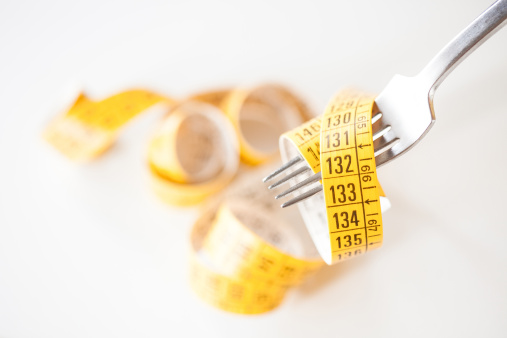
“Just tell me what to eat.” Weight-loss experts say that’s the number one thing they hear from women who are trying to slim down. And no wonder: Whether it’s the endless aisles of food at the grocery store or a seemingly harmless salad bar, research shows that the more options you have, the more likely you are to blow your calorie budget.
The culprit? Decision fatigue. When faced with lots of choices, the regions of your brain responsible for willpower and regret become overstimulated, upping the odds that you’ll make poor decisions—and feel less satisfied with the selections you make even when they’re good ones.
“We think choice makes us happy, but the truth is, it can cause a lot of unnecessary anxiety,” says Judith Beck, PhD, author of The Diet Trap Solution and president of the Beck Institute for Cognitive Behavioral Therapy in Philadelphia. Most of your eating habits should be automatic, similar to putting on a seat belt when you get into a car, she says: “Making choices in advance helps you stay on track because it eliminates the ‘Should I? Shouldn’t I?’ struggle every time you need to decide something.” (Like when your co-worker brings in brownies—again.)
Here are five ways to streamline your day-to-day decision making so you can drop a few and feel less stressed in the process.
No. 1: Forget your “free day”
It’s a popular allowance among conscientious eaters, many of whom chronicle their mouthwatering splurges (waffles and whipped cream!) with #cheatday. But chowing down on whatever strikes your fancy as a reward for sensible eating the rest of the week can undo your hard work. Data from the National Weight Control Registry shows that people who lost a significant amount of weight are more likely to regain it if they allow themselves to eat with abandon on weekends and holidays. Even one day of chasing fries and cake with bottomless margaritas can more than double your regular calorie intake—and those calories add up. “When you step on the scale on Monday and see you’ve gained, you’ll probably feel discouraged, which undermines your resolve to keep eating healthy,” Beck notes. Plus, she adds, “it’s difficult to get back on track after a day- or weekend-long blowout. Normal eating feels like deprivation.”
No. 2: But treat yourself every day
Beck tells her patients to enjoy just one indulgent food a day. “Cookies, chips, fudge: Everything is fair game, provided you choose your treat in advance and stick to a moderate portion that fits into your daily calorie allotment,” she explains. If you’re going to have some chocolate after dinner, it’s easier to turn down a tempting cupcake at your nephew’s birthday. (And if it pains you to pass on the cupcake, you can make that the next day’s treat.)
No. 3: Say yes to soup Sunday
Or Tuna Taco Tuesday, or a big salad with protein as your go-to weekday lunch.
Self-control is like a muscle: The more you exert it (burger or branzino? Candy bar or nutrition bar?), the more fatigued it becomes, until you almost unconsciously make the decision you normally wouldn’t (burger and a candy bar, please!). Willpower is overrated,” says Jane Burrell Uzcategui, RD, instructor of nutrition at Syracuse University. “If you’re constantly relying on your brain to make the right choice, you’re constantly going to be disappointed.”
Having default snacks and meals reduces the number of decisions you make on any given day—so you’re more likely to eat well at other times. “I tell clients to have 5 to 10 staple recipes and switch them up: Make a different cut of meat one night, or try a new sauce in your weekly stir-fry,” says New York City dietitian Lauren Slayton, RD, author of The Little Book of Thin.
No. 4: Have backup meals at the ready
Don’t let an insanely busy day or burned dinner send you straight into the arms of the Papa John’s deliveryman. Instead, stock up on a few fast-fix meals that fit your diet criteria, so you’re prepared when things go awry.
Preplanned meals are smart even when you’re not crazed. In a recent study, researchers at ConAgra Foods asked people to have a light (270-calorie) frozen meal in place of their usual lunch three days a week for a month. Not only did folks report feeling satisfied hours later, they consumed 500 fewer calories per day.
“Having to measure portions or calculate calories can be tedious, and if you’re tired, it’s not going to happen. The reason frozen meals worked is because they offer options but eliminate guesswork,” explains Kristin Reimers, RD, whose study inspired a wellness program that helped more than 2,000 employees lose as many as 2 pounds a week by eating a microwave meal with under 450 calories at least once a day.
No. 5: Cut yourself off
Willpower can be weakest at night—which is why it’s so easy to intend to have just a little ice cream before bed, only to look down and discover that you’ve emptied half the pint. An easy fix: Tell yourself, “I don’t eat after 9 p.m.” (or a similar time that makes sense for your schedule). Says Beck, “Rules work, even when they’re self-imposed.”
What’s more, knowing that the kitchen is closed may make it easier to hit the hay—and being well-rested bolsters your willpower so you can make wise, waist-friendly food choices tomorrow.
This article originally appeared on Health.com.
More from Health.com:
More Must-Reads from TIME
- Why Trump’s Message Worked on Latino Men
- What Trump’s Win Could Mean for Housing
- The 100 Must-Read Books of 2024
- Sleep Doctors Share the 1 Tip That’s Changed Their Lives
- Column: Let’s Bring Back Romance
- What It’s Like to Have Long COVID As a Kid
- FX’s Say Nothing Is the Must-Watch Political Thriller of 2024
- Merle Bombardieri Is Helping People Make the Baby Decision
Contact us at letters@time.com